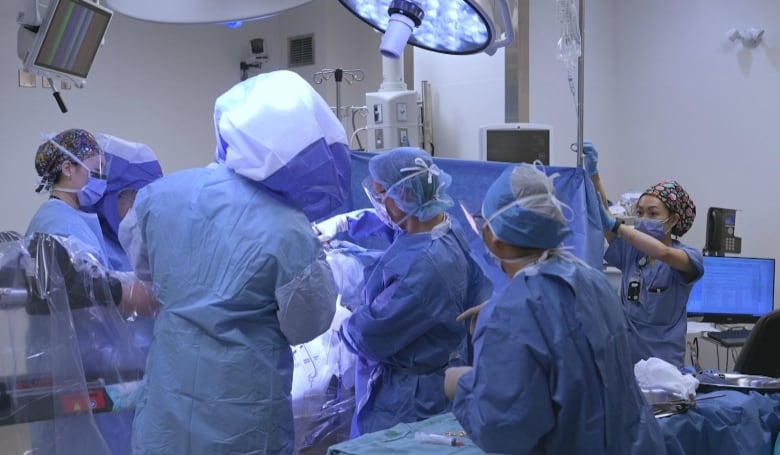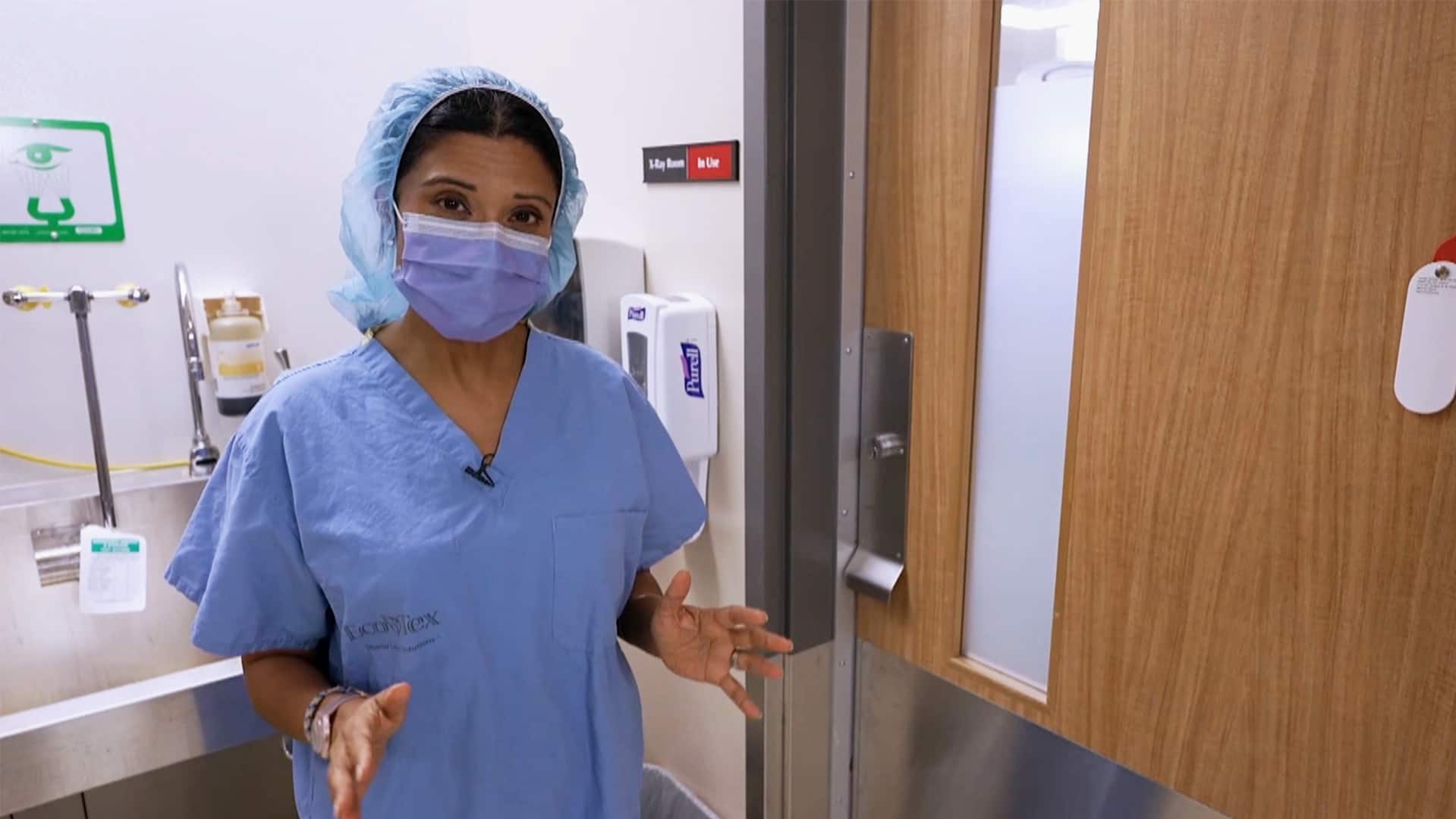Patients in all provinces are waiting longer for hip and knee replacements, cancer surgeries and other priority procedures than before the COVID-19 pandemic, national data shows.
A report released Thursday by the Canadian Institute for Health Information (CIHI) says that’s the case even though more people underwent those procedures between April and September 2023 compared to the same months in 2019.
The institute’s latest data looks at wait times for hip and knee replacements, hip fracture repair and certain cancer surgeries, as well as radiation therapy.
The data shows that 66 per cent of hip replacement patients had surgery within the recommended time frame of 26 weeks compared to 75 per cent in 2019, even though the number of procedures rose by 18 per cent.
As for knee replacement surgery, 59 per cent of people had the operation within that time frame, compared to 70 per cent before the pandemic.
Cheryl Chui, CIHI’s director of health system analytics, said a combination of factors are at play:
- Health systems catching up on delayed surgeries from the COVID-19 pandemic emergency.
- Higher need for some procedures because of an aging population.
- Have the right health workforce, available hospital beds and operating room time.
“We’re seeing that things are trending in the right direction,” she said. “We’re still just not back at where we were in 2019.”
Provincial highlights
Only 21 per cent of patients in Prince Edward Island had knee replacement surgery within 26 weeks, the lowest rate in the country. That figure was 37 per cent in Newfoundland and Labrador, and 38 per cent in both New Brunswick and Quebec.
Patients in Ontario waited the shortest amount of time for nearly all the procedures. The data shows 76 per cent of patients in that province had a knee replacement operation within the recommended time frame, while 57 per cent of British Columbia surgeries met that benchmark.
In Alberta, 49 per cent of people got the knee replacement surgery they needed within the recommended time frame.
Prince Edward Island was also at the bottom of the list for hip replacement surgery, with 39 per cent of people getting that operation within 26 weeks, while Ontario was again on top with 79 per cent.
Emergency surgery for hip fractures was done within the recommended 48 hours for 82 per cent of patients last year, compared to 86 per cent in 2019.
When it came to radiation therapy, 94 per cent of patients across Canada received the treatment within the recommended time frame, compared to 97 per cent in 2019. But once again, there were disparities among the provinces.
Toronto’s Humber River Hospital has started using a new model to get more hip replacement patients through the operating room. CBC’s Christine Birak breaks down how hyper-throughput surgeries work and why the hospital says it’s the type of innovation provinces should invest in.
While all Manitoba patients and 99 per cent of Ontario patients got radiation therapy within the recommended time frame, that figure dipped to 57 per cent for Newfoundland and Labrador, the lowest in Canada.
Even though there are no established benchmarks for breast, bladder, colorectal and lung cancer surgery, the report notes that median wait times for those procedures increased by two to four days, compared to 2019.
The publicly reportable wait-time benchmarks were set by the country’s health ministers in 2004 for joint replacements, sight restoration, cancer treatment, cardiac care and diagnostic imaging.
Freeing up hospital beds
Separate data from CIHI shows that all-time high percentages of hip and knee replacement surgeries meeting the benchmarks were recorded back in 2010, and that average wait times have risen for most procedures over the years.
Dr. Pierre Guy, a Vancouver surgeon and president of the 1,200-member Canadian Orthopaedic Association, said people needing hip and knee replacements typically have arthritis and suffer from daily pain.
“They do need to take pain medication, sometimes narcotics. Or they might need a cane and their daily activities would be significantly limited,” he said.
While the data shows the number of completed procedures, Guy said it’s important to note that many more people are still waiting for surgery that would improve their quality of life.
“I absolutely recognize the importance of the data, the importance of the metrics, as long as various hospitals and health authorities are not just focusing on hip and knee replacements to make the numbers look good.”
One solution is to discharge patients on the day they’ve had surgery, when appropriate, to free up more hospital beds, he said.
That would require a team of anesthesiologists, nurses and physiotherapists co-ordinating followup care, he said, and making sure the patient has everything they need at home post-surgery.
Nearly 17 per cent of hospital procedures were day surgeries in British Columbia between 2021 and 2022, compared to just one per cent in 2018, but that could be improved further, he said.
Guy would also like to see more physicians’ assistants hired to work with surgeons in operating rooms.
“We should start thinking more broadly than just the simple model of doctors and nurses.”
Canadian Press health coverage receives support through a partnership with the Canadian Medical Association. CP is solely responsible for this content.



